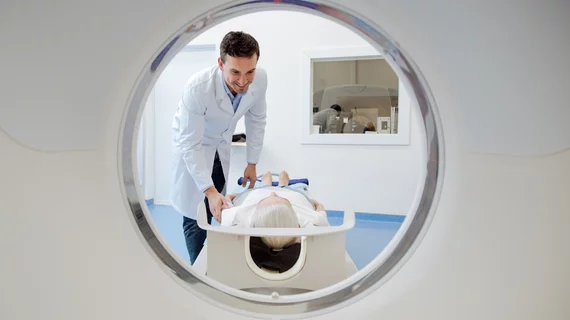Novel ‘double-contrast’ method spots small tumors on MRI
University of California, Davis researchers have created a new “double-contrast” magnetic resonance imaging technique capable of identifying very small tumors inside of tissue.
The new research, published May 25 in Nature Nanotechnology, harnesses an event called magnetic resonance tuning that takes place between two nanoscale magnetic elements. UC Davis scientists created a novel probe that generates two of these MR tuning signals that suppress each other until they reach their target, increasing the contrast between the tumor and the surrounding area.
And when paired with custom-made imaging analysis software, the two-way magnetic resonance tuning signal helped the group spot brain tumors in a mouse model.
"It's a significant advance," said senior author Yuanpei Li, associate professor of biochemistry and molecular medicine at the UC Davis School of Medicine and Comprehensive Cancer Center. "This could help detect very small early-stage tumors."
The details of how exactly the tuning signal probe improves visualization are complex and can be read more in-depth here. But when Li et al. tested their method in brain and prostate cancer cell samples from mice, they achieved a tumor-to-normal ratio of 10. For comparison, most MRI probes allow for a ratio of 2 or less.
The researchers hope to eventually bring their technique into clinics but said it will require a lot of work before they could even apply for investigational new drug approval.

